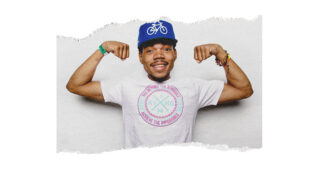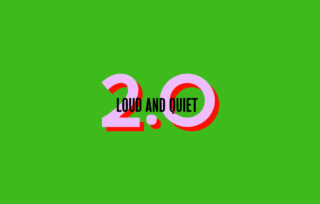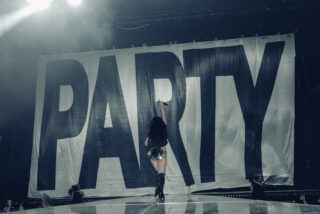With the start of every new year, the relevance of ‘ones to watch’ type articles arguably becomes ever more diminished. Predicting what’s going to be popular has always been a crapshoot, but during periods of relative stability in the music industry, some trajectories seem more inevitable and bankable than others. Artists build momentum, grow a wider audience, get label backing and become an obvious and relatively safe tip.
However, getting experts to predict genuine breakthrough artists in the streaming and TikTok age feels bordering on antiquated, like trying to cast spells to summon gods. At a time when bedroom pop songs made by teenagers can blow up and go viral overnight, when Kate Bush can return to number one after 37 years because of music placement in a Netflix show, or cult Scottish post-punk outfit Life Without Buildings can rack up over 11 million Spotify plays because of a track being used on TikTok, it’s clear that much of the real power over what explodes, breaks through or sets the tone for the year lies with forces outside of the music industry itself. Where labels, press, radio and the like once laid down an agenda for the year, increasingly they are now responding to ones that have already been determined democratically.
Despite many labels’ growing obsession with TikTok and their attempts to penetrate and manipulate its output (Cat Zhang’s 2022 essay ‘TikTok Is Turning Music Marketing Into a Labyrinthian Game’ for Pitchfork is insightful on such tactics), predicting what will blow up in 2023 simply feels impossible. I mean, just look at all the backbreaking gymnastics people did to try and convince everyone, and themselves, that Indie Sleaze was going to be a thing in 2022, only for the biggest retro 2000s hit of the year to turn out to be, effectively, a novelty song: ‘Jiggle Jiggle’, a reworked rap from a Louis Theroux episode.
Yet still the lists and predictions come. For loose guidance, fun and genuine recommendations from individual music writers, they still serve a welcome purpose and can be a nice boost for emerging artists. The most prominent of these lists is the BBC Sound of… poll, which knocks up a ten-artist longlist at the end of each year, with a winner announced early the following one. The 2023 winner is FLO, with other nominees including the likes of Asake, Fred Again, Gabriels, Nia Archives and Biig Piig. This list was chosen by a panel of over 130 industry experts and artists.
With every fresh arrival of the BBC Sound of… poll, a wave of cynicism or criticism often follows. A regular objection is that the BBC – through its TV and radio channels, as well as music festivals – has the power to actually make these nominated artists relatively successful and therefore has some degree of control over the outcome of their predictions.
All the way back in 2008, The Guardian’s Kitty Empire wrote that the poll was “like a cold climate Mercury Prize shortlist” that “generates a lot of buzz and ripple, chiming as it does with the many other Ones to Watch features in print and online. The cumulative weight of all this predictive text creates a self-fulfilling prophecy. These tippable acts will often have tours booked and singles playlisted and a whole infrastructure of investment in place.” She concluded that “it all seems so preordained… the industry of tipping offers us a scripted musical future. All this copy-cat consensus takes away choice.”
As alluded earlier, major criticisms of the list have frequently suggested it is too heavily weighted towards mainstream acts on major labels, and so safe horses with stacks of money and publicity teams behind them, who have already penetrated press circles ahead of time, are being backed over grassroots artists, never mind punts on some kid in a bedroom in Bradford knocking out mind-melting acid-donk or something. One A&R person, from one of the UK’s largest independent record labels, told me: “I didn’t even bother looking at BBC Sound of 2023. For the last five years it has been controlled by the majors.”
Despite the ability to clearly predict what is going to happen in the ensuing year slipping through the fingers of the music industry ever more in the social media age, such lists now seem to be less about meaningful power, prestige and prescience, and more of a desperate clinging onto the status quo; a last-gasp attempt to retain established order in a world where the unpredictable and chaotic reigns supreme.
However, while these same criticisms have been rearing their head year-on-year when the list is announced – and the idea that major labels have a potentially unfair influence over shaping hype and narrative is hardly new – what’s started to accompany them, and new artists as a whole, is accusations of being industry plants.
“One thing that presses me sometimes… ni**as be trying to call me an industry plant and all types of shit” – Chance The Rapper
Wet Leg came runner up in the BBC Sound of 2022 poll, but along with their swift success came a torrent of accusations of being an industry plant. Their arrival, apparently from nowhere (the Isle of Wight), already signed to indie heavyweight Domino and with a remarkably fully-formed, infectious debut single – a rare beast that captivated TikTok-obsessed teenagers and 6Music-listening dads alike – seemed so perfect that it could only have been the workings of something more sinister, constructed and manufactured.
An ‘industry plant’ is largely accepted to mean an artist who presents themselves as being independent and doing things on their own terms, but secretly has the industry backing and money to fund them and to artificially shape such a narrative. Its roots go back to the hip-hop world, gaining prominence a decade or so ago with people accusing the likes of Chance the Rapper of being such a plant; such was the speed and force of his ascent that many deemed it could only be the result of a carefully manufactured and label-backed move. Years later, in 2018, it was still something that he struggled to shake off. “One thing that presses me sometimes…” he told Pitchfork. “I got pretty thick skin but ni**as be trying to call me an industry plant.”
In the rap world, these accusations carry a particularly weighty punch. Given the significance of personal back story in many hip-hop artists’ work – often accounts of struggle, of grinding your way out of a troubled existence to a better life for you and your family – it’s seen as particularly offensive if you’re portraying yourself as busting your way up through the ranks without mentioning the industry coin in your pocket acting as a vital safety net. The fundamental issue here seems to be that not only are you being disingenuous or flat-out deceiving your audience, but you are trading off their sympathy – or worse, their empathy.

Over the years, this has gone from being relatively specific to the hip-hop world to becoming common across pop, indie and even punk, with the pop-punk outfit the Tramp Stamps being declared “the most hated band on TikTok”, such was the vengeful pile-on around them being industry plants. Since Lana Del Rey’s heavily criticised and stigmatised transformation around the release of ‘Video Games’, those who have been accused of similar transgressions include Billie Eilish, Halsey, Phoebe Bridgers, Clairo, Jack Harlow and countless others.
“I just want to hear the reasons why that’s said,” Eilish said in response. “I don’t believe in the industry plant bullshit because it’s actually impossible to make someone genuinely successful and it be fake. You can get famous and be fake but not have people cherish you and make art that is really good.” Harlow responded by doubling down on his work rate credentials. “I did open mics, I did SXSW,” he said. “I did showcases with no one there. My first tour, I went to Madison, Wisconsin, and did a bar with eight people. If people didn’t see any of that, they’re like, ‘Where’d he come from?’” The Tramp Stamps were forced to make a statement, also taking a defensive stance, by stating: “You have gone to the ends of the fucking earth to shit on us, have told us to kill ourselves, and have used conspiracy theories on TikTok as a trend to get more views on your own videos. Fuck you. You don’t like our music? Don’t listen to it.”
Of course, nobody admits to being an industry plant, if such a thing were to even exist, because people have an instinctive response to defend their own hard work regardless of their background. Despite many people in the industry benefiting hugely from privilege or nepotism, they don’t believe that undermines or eradicates the hard work they’ve put in. It’s a bit like being accused of being a bad driver, it’s something people get passionately defensive about despite clear evidence to the contrary. Nobody wants to be seen as having had an easy or free ride, and of course people work hard regardless of how they got there in the first place. But this attitude creates blind spots, wilful ignorance, or even delusions, resulting in an industry that is frankly riddled with people from vastly privileged backgrounds who have convinced themselves its merit alone that has got them there (see also: the Conservative Party). A recent report in the UK found that the proportion of working-class creative workers has shrunk by half, to just 7.9%, since the 1970s.
However, seeking justice and redressing inequality doesn’t necessarily seem to be the primary motivators for people leading these witch-hunt type investigations. When TikTokers dug up old tweets from a member of the Tramp Stamps using the n-word and seeming to suggest she supported Donald Trump, as well as the band’s guitarist having an old publishing deal with the label of alleged abuser Dr Luke, the greatest ire seemed to be aimed at the falseness of the band, their inauthenticity, being accused of “co-opting riot grrrl aesthetics”.
The anger and contempt seem more to do with the (admittedly horrible) marketing of the band, and what an insulting thing it is to try and present and package a shiny new pop-punk band to a young, smart and engaged audience who can smell insincerity and disingenuity a mile off. In the world of industry plant accusations, a perceived lack of authenticity seemingly trumps all in terms of offences – which seriously, and problematically, muddies the waters.










